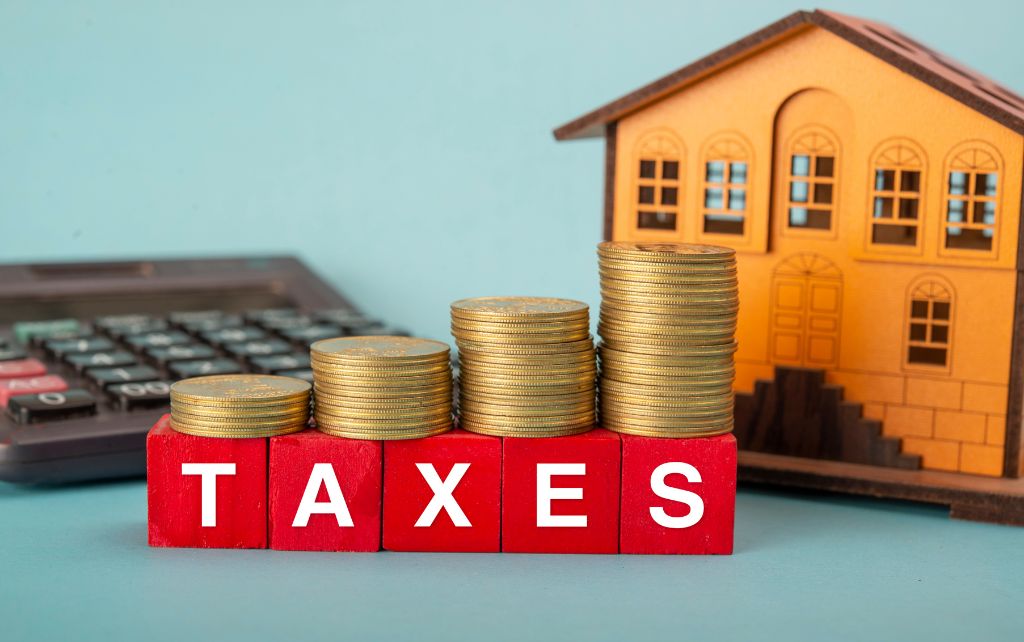17 Jul Understanding Property Taxes in St. Louis
Understanding property taxes in St. Louis is a crucial aspect of homeownership, impacting your overall cost and influencing your financial planning. For residents, understanding how property taxes in St. Louis work can help you make informed decisions and manage your expenses effectively. In this blog, we will delve into the fundamentals of property taxes in St. Louis, how they are calculated, and what you need to know as a homeowner or prospective buyer.
What are Property Taxes?
Property taxes are levies imposed by local governments on real estate properties, including land and buildings. These taxes fund essential public services such as schools, emergency services, infrastructure maintenance, and parks. Property taxes in St. Louis are a primary source of revenue for both the city and county, supporting a wide range of community services.
Calculating Property Taxes in St. Louis
Property taxes in St. Louis are determined by two main factors: the assessed value of your property and the local tax rate. Here’s a step-by-step breakdown of the calculation process:
1. Assessing Property Value
The first step in calculating property taxes is determining the assessed value of your property. This value is typically a percentage of the property’s market value, which is estimated by the St. Louis County Assessor’s Office. The assessment process considers various factors, including the size of the property, its location, and comparable sales in the area.
In St. Louis County, residential properties are assessed at 19% of their market value. For example, if your home has a market value of $200,000, the assessed value would be $38,000.
2. Determining the Tax Rate
The next step is applying the local tax rate, also known as the mill rate, to the assessed value. The tax rate varies by jurisdiction and is expressed in mills, where one mill equals $1 per $1,000 of assessed value. The total tax rate comprises various components, including school district taxes, city or county taxes, and other special district levies.
For instance, if the combined tax rate in your area is 7.5 mills, you would multiply the assessed value ($38,000) by the tax rate (0.0075), resulting in an annual property tax of $285.
3. Calculating the Final Tax Bill
The final property tax bill is the product of the assessed value and the tax rate, with any applicable exemptions or deductions subtracted. Common exemptions in St. Louis include the homestead exemption for primary residences and exemptions for senior citizens or veterans.
Important Considerations for St. Louis Homeowners
Understanding the nuances of property taxes in St. Louis can help you plan your finances better and take advantage of potential savings. Here are some key considerations:
1. Reassessment and Appeals
Property values in St. Louis are reassessed periodically to ensure they reflect current market conditions. If you believe your property’s assessed value is too high, you have the right to appeal the assessment. The appeal process involves providing evidence to support your claim, such as recent sales data of comparable properties.
2. Tax Payment Schedule
Property taxes in St. Louis are typically due annually, with bills sent out in the fall and payments due by the end of the year. It’s important to budget for this expense and set aside funds throughout the year to avoid any financial strain.
3. Impact on Mortgage Payments
If you have a mortgage, your lender may include property taxes in your monthly payments through an escrow account. This means a portion of your monthly payment goes towards your property taxes, ensuring they are paid on time. Understanding how this works can help you manage your overall housing costs more effectively.
4. Exemptions and Deductions
Take advantage of any available exemptions or deductions to reduce your property tax burden. The homestead exemption, for instance, can provide significant savings for homeowners who use the property as their primary residence. Additionally, explore any local programs for seniors, veterans, or disabled individuals that may offer further relief.
Conclusion
Property taxes in St. Louis are an integral part of homeownership in St. Louis, funding essential services that benefit the community. By understanding how these taxes are calculated and staying informed about potential exemptions and appeals processes, you can manage your expenses more effectively and make informed decisions as a homeowner.
For more detailed information and personalized guidance on property taxes and real estate in St. Louis, contact us at Hermann London. Our team of experienced real estate professionals is here to help you navigate the complexities of the local market and achieve your homeownership goals. We have partnered with professionals to provide you with comprehensive support.
 CLICK HERE FOR PODCAST
CLICK HERE FOR PODCAST
